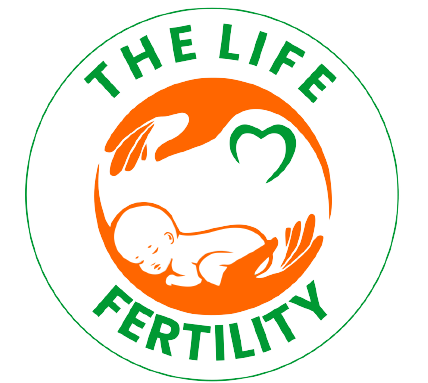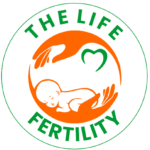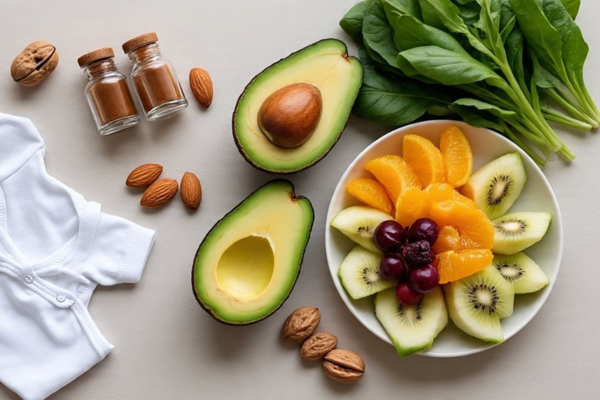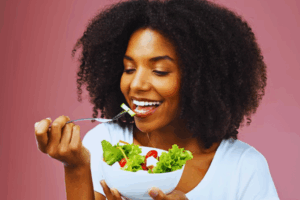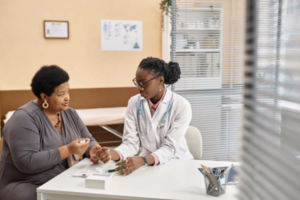Introduction
For women with Polycystic Ovary Syndrome, the dream of motherhood can often feel like an uphill battle. The journey to conceive with this condition can be filled with frustration and uncertainty due to the common hormonal imbalances and irregular cycles it causes.
But there is a lot of hope and power in a natural approach. The core of this guide is to show you that getting pregnant with PCOS naturally is an achievable goal, not just a distant dream.
This ultimate guide will provide a clear, science-backed roadmap to support your body’s ability to ovulate and conceive. We’ll explore how key lifestyle and dietary changes can directly address the root causes of PCOS and restore fertility.
By focusing on smart nutrition, targeted exercise, and stress reduction, you can significantly boost your chances of getting pregnant with PCOS naturally. This is more than just a list of tips—it’s an empowering resource to help you take control of your fertility journey.
What is PCOS and How Does it Affect Conception?
Polycystic Ovary Syndrome (PCOS) is a complex hormonal disorder that affects women of reproductive age. While its name suggests the presence of many cysts, the real issue for fertility lies in a delicate hormonal imbalance that prevents ovulation.
Unlike a regular menstrual cycle, where one egg matures and is released, women with PCOS often experience anovulation, where an egg either doesn’t mature properly or isn’t released at all. This makes getting pregnant with PCOS naturally a significant challenge.
At the heart of this problem are two key factors: insulin resistance and elevated androgen levels. The majority of women with PCOS have a condition called insulin resistance, where the body’s cells don’t respond effectively to the hormone insulin.
In response, the body produces even more insulin. This cascade leads to a rise in androgen levels (often called “male hormones”), which disrupts the delicate hormonal balance required for a healthy reproductive cycle.
When this balance is off, the body can’t signal the ovaries to release an egg, making it nearly impossible to conceive. Understanding these underlying mechanisms is the first step toward finding a solution to conceive with PCOS.
The Power of a PCOS Diet to Improve Fertility
Diet is arguably the most powerful tool you have to manage your PCOS symptoms and improve your chances of getting pregnant. Since insulin resistance is a key driver of PCOS, a targeted diet can significantly improve your insulin sensitivity and, in turn, help balance your hormones.
Think of your food choices as medicine. The right nutrients can reduce inflammation, regulate blood sugar, and create a fertile environment for your body. The goal of a PCOS diet to get pregnant is not about restriction, but about fueling your body with foods that support your reproductive health and can restore your hormonal balance, which is a key step for getting pregnant with PCOS naturally.
Foods to Focus On for Natural Fertility
When building your fertility plate, prioritize nutrient-dense, whole foods. Focus on lean proteins like chicken, fish, and legumes, which can stabilize blood sugar and provide the building blocks for healthy hormones. Incorporate a generous amount of healthy fats from sources such as avocados, nuts, and seeds.
These fats are essential for hormone production and reducing inflammation. High-fiber foods are crucial because they slow down glucose absorption and help manage insulin levels. Fill your plate with a variety of vegetables (especially leafy greens), fruits (like berries), and whole grains such as quinoa and brown rice.
Small additions like millets and turmeric can also have a significant impact on inflammation and insulin regulation, making your efforts to get pregnant with PCOS naturally much more effective.
Foods to Avoid or Limit
To support your fertility, it’s equally important to be mindful of what you’re consuming. Foods that are highly processed, high in sugar, or refined carbohydrates can cause rapid spikes in blood sugar and insulin, worsening your symptoms and making it harder to ovulate. This includes foods like white bread, pastries, and sugary drinks.
These choices can contribute to a vicious cycle of insulin resistance and hormonal imbalance. By limiting these items, you can create a more stable environment inside your body, which is a foundational step in your journey toward getting pregnant with PCOS naturally.
Lifestyle Changes to Boost Ovulation and Regulate Your Cycle
Exercise: The Right Movement for Fertility
Incorporating physical activity is a vital component of a natural approach to conceiving with PCOS. Exercise is a powerful tool for improving insulin sensitivity, which, as we’ve discussed, is a primary driver of hormonal imbalance. When your body uses insulin more efficiently, it can help lower androgen levels and regulate your menstrual cycle, making it a crucial step toward getting pregnant with PCOS naturally.
The key isn’t to overdo it, as excessive workouts can actually elevate stress hormones like cortisol and negatively impact ovulation. Instead, focus on moderate-intensity activities that you enjoy. A brisk 30-minute walk, cycling, or swimming can be incredibly effective.
Practices like gentle yoga for PCOS can also improve blood flow to the reproductive organs and reduce stress, offering a dual benefit. The goal is consistent, gentle movement, not high-impact training that puts your body under too much stress.
Prioritizing Stress Reduction and Sleep Quality
Stress and poor sleep are often overlooked factors, but they can significantly hinder your progress when trying to get pregnant with PCOS naturally. The stress hormone cortisol can throw your entire endocrine system out of whack, directly interfering with the hormones responsible for ovulation.
Finding effective ways to manage stress is therefore critical. Simple techniques like deep breathing exercises, meditation, or even engaging in hobbies you love can make a big difference.
Equally important is prioritizing sleep quality. Your body performs essential hormonal regulation and healing while you sleep. Aim for 7 to 8 hours of uninterrupted rest each night to support your body’s natural processes. A well-rested body is a more hormonally balanced body, which greatly improves your chances of getting pregnant with PCOS naturally.
Natural Supplements for PCOS and a Healthy Pregnancy
For many women, adding targeted supplements can be the final piece of the puzzle to improve fertility and increase their chances of getting pregnant with PCOS naturally. A type of B vitamin has shown remarkable results in improving insulin sensitivity and regulating the menstrual cycle.
By helping the body use insulin more efficiently. Studies have shown a high success rate in restoring ovulation for many women, making it a powerful tool for anyone trying to conceive with PCOS.
Other Key Supplements to Support Fertility
Several other supplements can enhance your journey toward getting pregnant with PCOS naturally. Vitamin D deficiency is common in women with PCOS and is linked to ovulatory dysfunction. Supplementing can help improve egg quality and hormone regulation.
Omega-3 fatty acids, found in fish oil, are powerful anti-inflammatory agents that can help manage inflammation and insulin resistance. Lastly, Folic acid is a non-negotiable for anyone planning a pregnancy. It’s vital for preventing neural tube defects and supports overall reproductive health.
By strategically adding these supplements, you are giving your body the support it needs to regulate its processes and improve its chances of conceiving.
Tracking Your Cycle: Even with Irregular Periods
Finding Your Fertile Window
When your periods are irregular, trying to track ovulation can feel impossible. However, it’s a vital step for getting pregnant with PCOS naturally because it helps you pinpoint your fertile window.
You don’t have to rely on guesswork or traditional ovulation kits, which often give inaccurate readings for those with hormonal imbalances. Instead, focus on two reliable methods to help you identify a pattern in your cycle.
The first is tracking your basal body temperature (BBT). This involves taking your temperature with a special thermometer first thing in the morning before getting out of bed. Your temperature will show a slight, sustained increase after ovulation occurs.
The second is monitoring your cervical mucus. As your body prepares for ovulation, your cervical mucus will change, becoming clear, slippery, and stretchy, similar to egg whites. By tracking these changes in a journal or an app, you can start to identify a pattern and better predict when you might ovulate, maximizing your chances of getting pregnant with PCOS naturally.
When to Seek Medical Help: A Natural Approach is Just the Beginning
Recognizing the Signs to See a Doctor
While a natural approach is incredibly powerful and effective for many women, it’s essential to know when to seek professional medical guidance. The goal is to work with a doctor who can support your journey toward getting pregnant with PCOS naturally, not just jump to invasive procedures.
As a general rule, if you have been consistently following a healthy diet and lifestyle, using supplements, and tracking your cycle for 6 to 12 months without a successful pregnancy, it may be time to consult with a doctor or a fertility specialist.
Medical intervention is not a sign of failure but a strategic next step. Your doctor may recommend a range of options that can work with your natural efforts. These could include medications that will help with insulin resistance, or ovulation-inducing drugs to help regulate your cycle.
These tools, used in conjunction with your lifestyle changes, can significantly increase your chances of conceiving.
Conclusion
Getting pregnant with PCOS naturally is a journey, and while it may present unique challenges, it is absolutely an achievable goal. By focusing on a holistic approach—from a mindful diet and smart supplementation to targeted exercise and stress reduction—you can lay a strong foundation for a healthy pregnancy.
Remember, you have the power to take control of your health and restore your body’s natural rhythm. This guide is a tool to empower you, and with consistent effort and a hopeful mindset, you can navigate your fertility journey and boost your chances of getting pregnant.
Can I still get pregnant with PCOS naturally without medication?
Yes, many women with PCOS can conceive naturally through targeted lifestyle changes. While medical intervention is an option, focusing on diet, exercise, and supplements can significantly improve your body’s hormonal balance and lead to regular ovulation, making it possible to get pregnant with PCOS naturally.
Is there a link between PCOS, weight loss, and getting pregnant?
Yes, even a small amount of weight loss (5-10% of your body weight) can significantly improve insulin sensitivity and help regulate ovulation, which is often a crucial step towards conceiving naturally with PCOS. That’s why it’s essential to achieve a healthy weight for fertility.
What is insulin resistance, and how does it affect fertility?
Insulin resistance is a condition where your body’s cells don’t respond well to insulin. This leads to high insulin levels, which can cause your ovaries to produce excess androgens. This hormonal imbalance is a major reason for irregular periods and anovulation, making it harder to get pregnant with PCOS.
What is the best diet to follow for PCOS fertility?
The most effective diet for getting pregnant with PCOS naturally is a low-glycemic, anti-inflammatory diet. This means focusing on whole foods, lean proteins, healthy fats, and high-fiber vegetables while limiting processed foods, sugar, and refined carbohydrates.
How long does it take to get pregnant with PCOS naturally?
The timeline varies greatly for each individual. Some women may see results within a few months of consistent effort, while for others it may take longer. Consistency with diet and lifestyle changes is key to restoring ovulation and increasing your chances.
